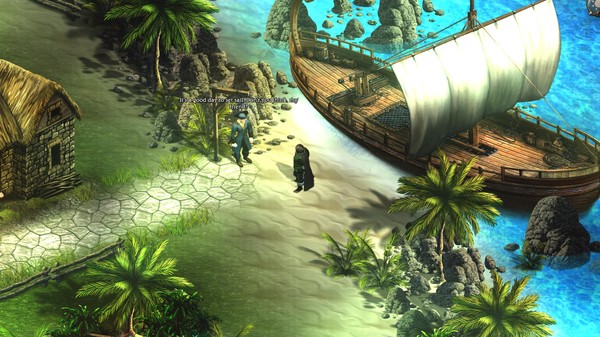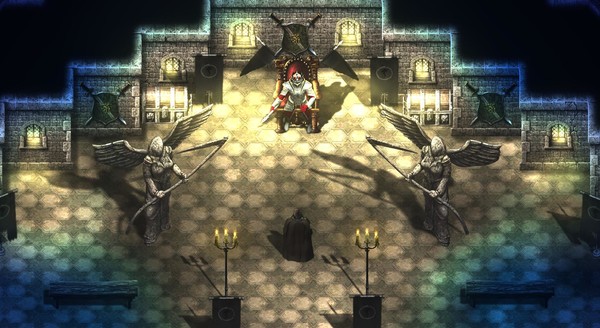-
Welcome to rpgcodex.net, a site dedicated to discussing computer based role-playing games in a free and open fashion. We're less strict than other forums, but please refer to the rules.
"This message is awaiting moderator approval": All new users must pass through our moderation queue before they will be able to post normally. Until your account has "passed" your posts will only be visible to yourself (and moderators) until they are approved. Give us a week to get around to approving / deleting / ignoring your mundane opinion on crap before hassling us about it. Once you have passed the moderation period (think of it as a test), you will be able to post normally, just like all the other retards.
You are using an out of date browser. It may not display this or other websites correctly.
You should upgrade or use an alternative browser.
You should upgrade or use an alternative browser.
Jeff Vogel Soapbox Thread
- Thread starter Humanity has risen!
- Start date
Mustawd
Guest
Looks like Vogel got himself a new Sprite artist.
https://remusprites.carbonmade.com/

https://remusprites.carbonmade.com/
About
I'm a 3d artist with experience in anything sprite-related. I especially love to create and animate characters based on original concept for use in outstanding games. I work fast and being a perfectionist by nature, I strive to always improve and learn new things.
Character Artist - Villain Games LLC /January 2016 - December 2017
Currently: Props Artist - Spiderweb Software, Inc./ February 2018 -

Mustawd
Guest
No. Haven't heard that at all. And I didn't see him mention that in his AMA either.
EDIT: And seeing that his audience is used to either top down (OLD TM), or Isometric, I'd be surprised if it was anything other than isometric. The dude is not a huge risk taker, as his history with remakes shows. I mean what's the alternative? First Person? Third Person?
EDIT: And seeing that his audience is used to either top down (OLD TM), or Isometric, I'd be surprised if it was anything other than isometric. The dude is not a huge risk taker, as his history with remakes shows. I mean what's the alternative? First Person? Third Person?
Fireblade
Erudite
- Joined
- Mar 27, 2004
- Messages
- 207
https://www.reddit.com/r/Games/comm...ftware_since/dtwdvob/?st=jedvfbt8&sh=d04e4e34No. Haven't heard that at all. And I didn't see him mention that in his AMA either.
EDIT: And seeing that hi audience is used to either top down (OLD TM), or Isometric, I'd be surprised if it was anything other than isometric. The dude is not a huge risk taker, as his history with remakes shows. I mean what's the alternative? First Person? Third Person?
Mustawd
Guest
https://www.reddit.com/r/Games/comm...ftware_since/dtwdvob/?st=jedvfbt8&sh=d04e4e34No. Haven't heard that at all. And I didn't see him mention that in his AMA either.
EDIT: And seeing that hi audience is used to either top down (OLD TM), or Isometric, I'd be surprised if it was anything other than isometric. The dude is not a huge risk taker, as his history with remakes shows. I mean what's the alternative? First Person? Third Person?

Thanks, missed that in his AMA. Although, he sounds drunk.
Mustawd
Guest
Well, tbh, if it's his old Exile games top down style (also goldbox and other iconographic styles) in a higher fidelity, then I'd be ok with it. However, if it's the Fantasy Grounds style then I wouldn't be a fan at all.
Exile:

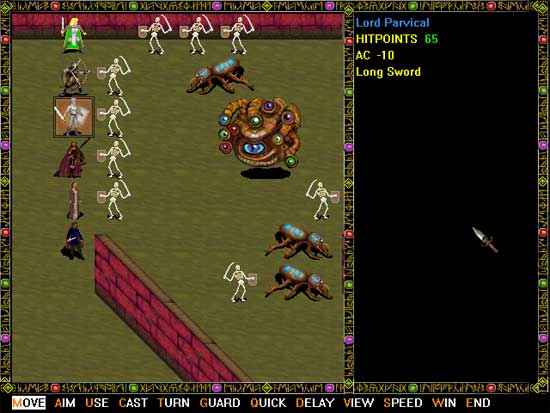
Fantasy Grounds:
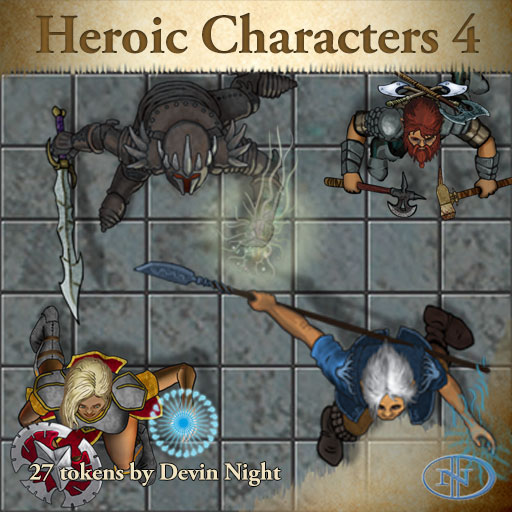
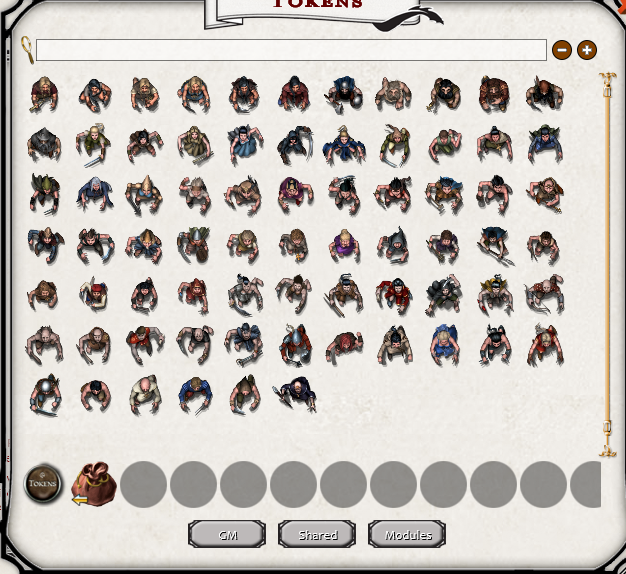
Exile:


Fantasy Grounds:

Mustawd
Guest
Well, judging from that sprite artist's sample there, I REALLY hope it's isometric. That's some pretty good shit.
Yah, it'd be weird to hire an artist whose work is mostly isometric to do it in a diff style. But I guess Vogel marches to his own drum.
Also, some of his sample work is fairly old. I just happened to find him on Opengameart, where he released a p. nice tree pack from 2015.
https://opengameart.org/content/tree-collection-v26-bleeds-game-art
Also, there's an old forum thread from back in 2014 where you can see some of the progress over the years. He seemed to be heavy into weeb stuff, and then switched to a more western/realistic/medieval style.
http://gmc.yoyogames.com/index.php?showtopic=613503&hl=
Even the building I posted has some issues. For example, if you look at his website, you can tell the chimney is positioned kinda weird.
Jinn
Arcane
- Joined
- Nov 8, 2007
- Messages
- 5,606
Even the building I posted has some issues.
Still, though. Probably a better style than we've seen in any of Vogel's prior games.
Jinn
Arcane
- Joined
- Nov 8, 2007
- Messages
- 5,606
"Probably"?
A better isometric style for sure. Some might prefer the top-down art of the Exiles, however. Not me personally though.
LESS T_T
Arcane
- Joined
- Oct 5, 2012
- Messages
- 13,582
![The Year of Incline [2014] Codex 2014](/forums/smiles/campaign_tags/campaign_incline2014.png)
Sounds like he meant 16-bit JRPG/Zelda-like 3/4 perspective: https://www.reddit.com/r/Games/comm...f_spiderweb_software_since/dtwe5tw/?context=3
Example of (good looking) RPG Maker map:

Regarding the new engine: As far as I understand you are not sure which technical engine you want to use yet but you already have a vision of the perspective the player has? So it will be a top down perspective with 2d art? Can you give a comparison? Maybe similar to games like Heroes of Steel RPG or other games by the Trese Brothers? Will the new game have animations or just icons?
It will be similar to RPGMaker, but it will NOT be RPGMaker. In the end it will be entirely its own engine that plays in its entirely own way.
Example of (good looking) RPG Maker map:

Mustawd
Guest
Well...the plot thickens.
The artist listed above lists his last position as character artist with Villain Games LLC. A quick google search shows that they trademarked a game called Arena of Kings.
https://trademarks.justia.com/owners/villain-games-llc-3263937/
Further googling shows that Villain Games were looking for spell affect artists. They gave an example of what the characters looked like.
http://polycount.com/discussion/172...effects-and-animations-adobe-ae-expert-wanted

Plus, some further googling shows a screenshot of the intended game play. Pardon the watermark.

So....not quite sure what to make of this. The last image..and possibly the assassin image (if you were to rotate it), show viewpoints of a more side view that's reminiscent of Goldbox games (or even HoMM for that matter), but in higher fidelity.
The artist listed above lists his last position as character artist with Villain Games LLC. A quick google search shows that they trademarked a game called Arena of Kings.
Arena of Kings (AoK) is an online, multiplayer, 4v4 micro battle arena game deployed exclusively in the web browser with use of HTML5 and JS capabilities. AoK proudly encapsulates traditional RPG elements such as items, trading, spell customization, crafting, guilds, class mastery, etc. despite having zero "pay to win" gimmicks.
https://trademarks.justia.com/owners/villain-games-llc-3263937/
Further googling shows that Villain Games were looking for spell affect artists. They gave an example of what the characters looked like.
Character models have a 45 degree angle, thus the spells should fit/match that orientation.
http://polycount.com/discussion/172...effects-and-animations-adobe-ae-expert-wanted

Plus, some further googling shows a screenshot of the intended game play. Pardon the watermark.

So....not quite sure what to make of this. The last image..and possibly the assassin image (if you were to rotate it), show viewpoints of a more side view that's reminiscent of Goldbox games (or even HoMM for that matter), but in higher fidelity.
Last edited by a moderator:
Mustawd
Guest
They gave an example of what the characters looked like.
The assassin is basically the same model from this post, fyi.
http://gmc.yoyogames.com/index.php?showtopic=613503#entry4955874
Mustawd
Guest
Found his youtube...jeez...I feel like a stalker now. :/
But hey, free publicity? Right?
But hey, free publicity? Right?
- Joined
- Mar 22, 2015
- Messages
- 1,885

I mean he's an artist. I don't think the platform of his last game impacts his ability to draw images in photoshop really. What's more important is the art style he brings from that game.
Just because Vogel got an artist from a F2p game doesn't mean he is going in that direction at all, just means he needed an artist with that style.
Just because Vogel got an artist from a F2p game doesn't mean he is going in that direction at all, just means he needed an artist with that style.
Mustawd
Guest
I mean he's an artist. I don't think the platform of his last game impacts his ability to draw images in photoshop really. What's more important is the art style he brings from that game.
Just because Vogel got an artist from a F2p game doesn't mean he is going in that direction at all, just means he needed an artist with that style.
Well, he renders sprites from 3D models. And my main point is that the artist's style I think informs on what Vogel might be trying to achieve. So far we have Isomteric style which is what is displayed in his portfolio. However, the screenshot of the gameplay kinda looked more reminiscent of sideview/goldbox/homm type. Which can mean a variety of things:
1.) Vogel was kidding around and will actually be using isometric style artwork
2.) Vogel might use kind of side view style graphics, which might indicate Homm and even, god forbid, JRPG style combat where you have static characters fighting enemies from the opposite side.
3.) It might be goldbox style combat with either one sideview, or multiple sideviews. The latter might indicate that directional facing matters. Also, this artist does not charge extra for additional facing views.
- I will give an estimate of time needed to complete, but allow a minimum of 1 week for completion.
- I don't work on weekends, so those don't count towards one week.
- I don't work for free or royalties/shares.
- You must pay half up-front and the rest upon completion. I only accept PayPal.
- Prices vary to accommodate the complexity of the model.
- Also note i don't do trademarked characters (Zelda, Pokemon, Mario, Megaman..etc)
- Concept art will help, it's not required but useful.
- I don't charge for the number of directions needed, can be anything from 1 to 360.
In exterior it pretends to be isometric-ish, but inside dungeons it turns into 3/4 perspective.
FWIW, I have a feeling it might be that perspective from the example you showed. Full up, down, left, right directions. Very rpgmaker/jrpg type viewpoint.
Last edited by a moderator:
gaussgunner
Arcane
That could be what he means by "topdown". Sprites rendered about 45 degrees front view, and background objects may be rotated, but gameplay is a simple 2D topdown grid. Looks almost as good as isometric while avoiding most of the design/coding headaches.
LESS T_T
Arcane
- Joined
- Oct 5, 2012
- Messages
- 13,582
![The Year of Incline [2014] Codex 2014](/forums/smiles/campaign_tags/campaign_incline2014.png)
Jeff Vogel Soapbox GDC Edition: https://www.usgamer.net/articles/spiderweb-software-gdc-2018-jeff-vogel-shareware
Spiderweb Software's Jeff Vogel Talks About What it was Like to Sell Indie Games in the Shareware Age
Unless you were okay with getting angry phone calls from potential customers, selling a game was a bit of a hassle in the mid-1990s.
Spiderweb Software, a small two-person indie studio founded in Seattle way back in 1994, has been around "long enough [to be] doing remasters of remasters." At least that's what developer Jeff Vogel tells a room of fresh-faced developers, likely none as seasoned in the industry as he, during the Game Developer's Conference talk Failing to Fail: The Spiderweb Software Way.
Vogel's talk covers a lot of aspects of his life, the talk itself he bills as a postmortem on his career rather than a single known game. And Vogel's seen a lot in his time: from being "lucky" in his success to watching major platforms like Steam make distribution a helluva lot easier.
In the mid-1990s, when Spiderweb Software was first established and before Vogel shipped his first game Exile: Escape from the Pit in January 1995, distributing an independent game was a lot more complicated than it is now. Rather than tossing something up on Steam or itch.io, Spiderweb Software relied on its games falling in the "shareware" category—meaning that his games' demos were initially available free of charge, and players were encouraged to "share" the demos, and if they liked it enough, seek out the full program to buy.
But shareware games' distribution in a time without internet didn't boil down to forums, but instead, pure word of mouth and other more arbitrary methods paved its success. Examples Vogel notes were primitive services like AOL, CompuServe, Prodigy, CDs of shareware games that were sold with magazines, floppy disks that were sold at mall kiosks. These shareware ventures contained demos, with players having to mail cash, money orders, or even using credit cards over the phone (if the bank trusted the developer enough to be able to even charge credit cards in the first place, as Vogel recalls having to print out a copy of his website in order to convince a bank that he was a business) to gain access to the full program.
"You want a discoverability problem? This is a discoverability problem," Vogel says. Somehow though, even with such a ridiculous gate of entry to independently developed games of the 1990s and even early 2000s, Vogel persevered. After all, Spiderweb Software is still around. He still operates by the simple creative process of figuring out what he wants to play (which are usually in the realm of niche turn-based fantasy RPGs), and making it. He doesn't have to employ a full-time employee anymore to do essentially what Steam now does for him: making his game accessible on a market.
The discoverability of games, even in a now very crowded indie games space, at the very least isn't as cumbersome as it once was. Prospective customers no longer have to call developers personally and complain for "about five hours" about having to pay money for a full game (as per an anecdote from Vogel's experience). Even in today's modern age, Vogel remains but a "humble toy maker," creating RPGs in near solitude alongside none other than his wife Mariann Krizsan.
Unless you were okay with getting angry phone calls from potential customers, selling a game was a bit of a hassle in the mid-1990s.
Spiderweb Software, a small two-person indie studio founded in Seattle way back in 1994, has been around "long enough [to be] doing remasters of remasters." At least that's what developer Jeff Vogel tells a room of fresh-faced developers, likely none as seasoned in the industry as he, during the Game Developer's Conference talk Failing to Fail: The Spiderweb Software Way.
Vogel's talk covers a lot of aspects of his life, the talk itself he bills as a postmortem on his career rather than a single known game. And Vogel's seen a lot in his time: from being "lucky" in his success to watching major platforms like Steam make distribution a helluva lot easier.
In the mid-1990s, when Spiderweb Software was first established and before Vogel shipped his first game Exile: Escape from the Pit in January 1995, distributing an independent game was a lot more complicated than it is now. Rather than tossing something up on Steam or itch.io, Spiderweb Software relied on its games falling in the "shareware" category—meaning that his games' demos were initially available free of charge, and players were encouraged to "share" the demos, and if they liked it enough, seek out the full program to buy.
But shareware games' distribution in a time without internet didn't boil down to forums, but instead, pure word of mouth and other more arbitrary methods paved its success. Examples Vogel notes were primitive services like AOL, CompuServe, Prodigy, CDs of shareware games that were sold with magazines, floppy disks that were sold at mall kiosks. These shareware ventures contained demos, with players having to mail cash, money orders, or even using credit cards over the phone (if the bank trusted the developer enough to be able to even charge credit cards in the first place, as Vogel recalls having to print out a copy of his website in order to convince a bank that he was a business) to gain access to the full program.
"You want a discoverability problem? This is a discoverability problem," Vogel says. Somehow though, even with such a ridiculous gate of entry to independently developed games of the 1990s and even early 2000s, Vogel persevered. After all, Spiderweb Software is still around. He still operates by the simple creative process of figuring out what he wants to play (which are usually in the realm of niche turn-based fantasy RPGs), and making it. He doesn't have to employ a full-time employee anymore to do essentially what Steam now does for him: making his game accessible on a market.
The discoverability of games, even in a now very crowded indie games space, at the very least isn't as cumbersome as it once was. Prospective customers no longer have to call developers personally and complain for "about five hours" about having to pay money for a full game (as per an anecdote from Vogel's experience). Even in today's modern age, Vogel remains but a "humble toy maker," creating RPGs in near solitude alongside none other than his wife Mariann Krizsan.
Last edited:
LESS T_T
Arcane
- Joined
- Oct 5, 2012
- Messages
- 13,582
![The Year of Incline [2014] Codex 2014](/forums/smiles/campaign_tags/campaign_incline2014.png)
More comprehensive report: https://www.gamesindustry.biz/articles/2018-03-19-jeff-vogels-advice-on-failing-to-fail
"Innovation is not the only path"
Spiderweb Software founder Jeff Vogel has been making indie games for 24 years, and he has some ideas on how others can do the same
In his 24 years of continuous indie game development, Spiderweb Software's Jeff Vogel has learned a few things. In a talk at the Game Developers Conference Independent Games Summit today, he shared some of those things, with the caveat that they may only apply to him and his career, may not be true forever, and may not even be true now.
"Video games are young," Vogel stressed. "Nobody knows anything. We're still scrambling to figure out, 'How do we design these things? How do we create these things? How do we test these things? How do we sell these things? How do we market these things? How do we add loot boxes to our $100 million project without causing it to blow up on the launch pad?'"
Vogel framed his talk as a walk through his personal career in game development, including the creative genesis of his very first video game project.
"It didn't take me long," Vogel said. "I came up with an idea. I loved these games as a kid, so what I'm going to do is I'm going to go to every single game I liked as a kid, and steal the single best idea from every one. And in my crasftsman way, I'm going to amalgamate them into what I hope is a cohesive and satisfying whole."
He added, "Indie games are great for innovation. I love innovation, but innovation is not the only path. You must remember that every single one of us stands on the shoulders of giants. I looked at what I liked to play and I copied it. That is my creative process."
He implored other developers in the audience to find a creative process similarly personalized to their own needs.
"This is going to sound like artsy fartsy, 'Oooo, follow your bliss, man!' advice, but no, it's not," Vogel insisted. "It's very hard-nosed, practical advice, and I'll tell you why."
As Vogel sees it, most people think about their careers in game development on a scale of one to five years. And for someone just starting out, that may seem like a reasonable thing to do. But it also helps to consider what happens when you consider trying to make a full career in indie game development, stretched across 40 years or more.
"That's a long time," Vogel said. "If you're going to work for that length of time, you're going to be operating at a peak level of efficiency--because you need to in this business--you need to create a life, a mindset, a process that is not going to rub at you. Because if there's something rubbing at you, something that's putting you off your feed? Over the next 40 years, it is going to rub you down to a nub."
Vogel's process wasn't just amalgamating other people's good ideas. He also set his quality threshold at the only level better than good: good enough. His formula for sequels was to look for the worst 25% of the previous game and work on improving that. He is "merciless" about reusing assets, code, and engines, and insisted that developers should never let anyone shame them out of being cheap. He estimated that he used the same wolf icon in 15 different games.
"People make fun of me for it all the time, but I am also still in business," Vogel said.
While Spiderweb's games built up an audience and were reasonably well received, they developed a reputation for being not terribly attractive.
"I was getting really sick of everyone telling me, 'Your graphics suck. Your graphics suck. Your graphics suck,'" Vogel said. "So I spent some actual money. I hired actual artists and get graphics that are somewhere on the same continent as the standard graphics of the time. The result of course, was that every day people told me, 'Your graphics suck. Your graphics suck. Your graphics suck.' That was the last time I ever made the mistake of making an effort."
That sort of criticism is also a fact of life for indie developers, Vogel said. A certain amount of humanity (he suggested 10% of absolutely any demographic) is just going to be mean, or make unreasonable demands. And while it's common enough for people to ascribe that sort of toxicity to the anonymous nature of the internet, Vogel said doing telephone support and sales for his games in the days before platforms like Steam convinced him that there's no shortage of people willing to be angry and mean to people in more direct conversation.
"Often the people who are angriest at you are not going to be completely anonymous," Vogel said. "They're going to be the people who five years ago were your most devout fans. And then you changed the thing, and it was their favorite thing, and now they don't like you anymore. Remember there is always a very thin line between love and hate."
That brings up another consideration if one's thinking about indie game development as a 40-year career, as Vogel said it's important to shelter one's brain from all avenues of assault. While acknowledging that as a white male, he gets less abuse than others, what is directed his way is still plenty to affect him. As a result, he doesn't look at Steam reviews of his games. He doesn't visit forums. He quits Twitter if people are being mean to him and logs back on later "when the coast is clear." And if a relationship with a customer is turning south, he's not reluctant to end it.
"Don't be afraid to fire a customer," Vogel said. "They say that the customer is always right. That's not true. Customers are wrong all the time. The difference is that nobody ever won an argument with a customer. There are times where you're going to have to say to someone, 'Look, my thing isn't for you. I can't add that feature. I can't write that expansion. I just can't do the thing you want.' Offer them a refund and send them on their way.
"If someone is on the forums and you can see that they're just there to cause trouble, ban them! If people are making noise, 'That person isn't screwing up your business, you shouldn't have banned them,' then ban them too! The beatings will continue until morale improves! ...People who are nice and support you will understand."
Like any studio, Spiderweb Software has had its ups and downs. Vogel pointed to 2004 as one particularly rough year after two of its titles--Blades of Avernum and Geneforge 3--didn't connect with players. Geneforge 3 in particular suffered from a bit of complacency, Vogel said.
"Once again, here's some advice that seems artsy. 'Oh yeah, you always have to be growing as a human, man. And have you ever looked at your hands?' No. You have to be growing as an artist, and this is hard-nosed, practical advice," he said. "Because for the most part, we're toy makers. We sell amusements. We sell things that tickle people's brains. We sell surprise. And complacency and predictability and repetition are the death of that. If you want to write a sequel, great. But your sequel better do something new. And it better introduce that new thing early. Because if people go, 'Yeah, I've done all this and I don't need to do all of this,' you're going to start bouncing checks."
Vogel saved perhaps the most universally applicable advice for last.
"Don't be proud of not getting enough sleep. You need sleep to live," he reminded the audience. "And get a chair that's good for your back. Because when your back goes, my god you're going to miss it."











